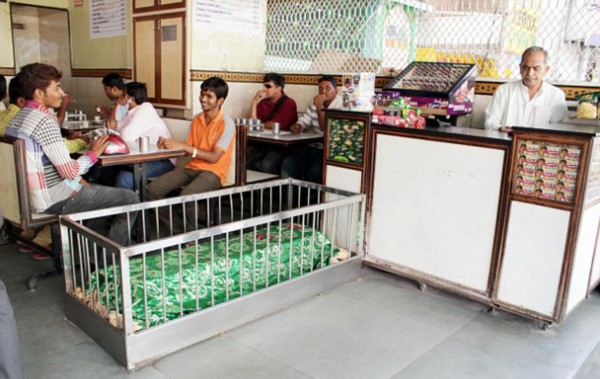A brief discussion on Cafe Marketing what is the "Cultural Marketing" of Cafe

What is the "cultural marketing" of cafes?
As long as it is a commodity, it will have its target customer base, and these groups have their own needs, which is the same as the marketing of general products or services.
It is already common to use various cultural products or forms to assist in commodity marketing, such as fashion shows at new car shows, fancy coffee shows, tea shows, live performances by singers, playing background music, and famous paintings on the back panel.
Considering marketing under the influence of culture as a social environment, Philip Kotler, a leading marketing scholar, did not explicitly put forward the concept of "cultural marketing". However, he pointed out that the factors involved in culture (including culture, subculture and social class) are the most basic factors that influence purchase decisions.
What is culture in the sense of sociology
According to the definition of sociologist David Popno, it refers to all the shared achievements of a human group or society, including material and non-material, if you open a coffee shop in Chongqing, then we should consider Chongqing people's values, language, knowledge and other non-material culture and architecture, transportation, vegetables and other material culture. Cultural marketing should form a culture conducive to competition and sales. Cultural marketing of cafes can be understood as something that includes many elements, such as brand image, brand connotation, brand loyalty, unique community (made up of existing and potential consumers), and so on. Once this kind of thing is formed, it will enable brand owners to gain the support of their communities in the competition, thus in a great advantage. It can be seen that cultural marketing has more universal and practical significance.
Analyze the cultural marketing of coffee shops and coffee shops
We open cafes to spread culture and to make money. Despite the great ideals, most bosses start a business in order to make money, not because they really love coffee. Of course, some exceptions are not ruled out here. Culture is very difficult to price, because its cost can be more or less; because culture is invisible and often runs counter to efficiency; all these make it easy to fall into the trap of culture for the sake of culture. Ignore the commercial purpose of cultural marketing (of course, if it is only as a personal hobby and exception), as a result, it is often difficult to create sales! From a business point of view, culture is what customers want and actually get beyond tangible goods and services that can be described. the more such things you provide to customers, the more customers depend on you. You have formed an inherent image in the minds of customers, which is worth more than tangible products or measurable services, and is difficult to change easily with the participation of competitors. This is the charm of cultural management.
Who are our customers and why do they spend money in cafes?
I think: the first may be the need for a quiet place to talk, when coffee shops and teahouses that are quiet, neat, softly lit and convenient (such as being close to work and providing broadband access) will become the first choice. The second may be the need for a place to relax during the work break, that is, the so-called third space, at this time, coffee shops and fast food restaurants that are fast and relaxing (through decoration, decoration, lighting, background music, etc.), free (providing self-service choice, casual reading of newspapers and periodicals and Internet browsing), convenient (providing a variety of snacks such as desserts), etc. The third may be the need for a love occasion, according to whether my girlfriend or potential girlfriend is quiet or active, I will choose a coffee shop or bar, the mood is the first, in addition, if the coffee shop or bar can show their own taste, that couldn't be better! The fourth possibility is that if I need to buy a good coffee set for my family and want to buy some self-polished coffee, and if the coffee shop can provide it, maybe I will go to the coffee shop. In most cases, you enter a coffee shop for a space. In the fourth case, you buy goods, but not exactly. Secondly, there is more than one choice in the process of meeting different needs. For example, teahouses, bars and fast food restaurants are all substitutes for coffee shops in some cases. Finally, there may be various grades of service choices for each demand.
How to make a good coffee shop
What the cafe wants to achieve is to be able to serve people who love cafes at any time. Now, cafes mainly offer their own services to white-collar workers in cities, but with the continuous development of China's economy and the rising income of ordinary people, this is constantly changing. Now many small cities in the Midwest are actively introducing McDonald's and KFC because operators believe that brand awareness has been established locally and it is only a matter of time before they open a restaurant to make money. The situation of McDonald's and KFC today is also a harbinger of the future of cafes. No matter how much money there is, it is interesting for urbanites to drink a cup of coffee together in a quiet and elegant environment.
Whenever your eyes feel sour in front of the computer screen, when a friend comes and has no place to talk, when you date with your girlfriend, how to make people think of you and your coffee naturally.
There is no such thing as a free lunch, which is inseparable from the cost. Marketers have to strike a balance between cost control and the provision of more services to promote the formation of a particular community culture.
Cafes should offer coffee lectures for customers. Professional baristas mainly explain the relevant knowledge of coffee, such as how to make coffee, the use of various utensils and so on. The form of these lectures needs to be very flexible, generally selected when there are more customers, the time is controlled at about 30 minutes.
In the cafe, there should be a professional barista to demonstrate to customers how to taste coffee: people have nearly a thousand senses of smell, so the feeling of coffee should be heard first, and the aroma of coffee can be smelled out. When drinking, open your mouth wide and leave some space so that you can taste the original taste of the coffee. When tasting, you should be more calm and calm and seriously feel the acidity and concentration of coffee. Due to the different kinds of coffee beans, the taste is also different. High acidity coffee has a bright irritation, such as Colombia. There is also a significant difference in coffee with different concentrations. If you haven't eaten yet, you might as well choose a cappuccino or latte with a high proportion of milk. if you don't have enough energy, you can choose some strong coffee, such as Sumatra manning coffee, charcoal-fired coffee. Set up lectures and sell coffee and knowledge together, which can not only cultivate the customer base but also expand the consumer market. Only by opening the market can we do business.
In order to achieve the effect of word-of-mouth, it is necessary to serve every guest. for this reason, it is particularly important for a cafe to have a good barista, not only to brew every cup of coffee and grasp every detail, but also to have a wealth of coffee knowledge and provide service attentively. When brewing coffee, make sure the beans are fresh, ground correctly, the amount of water is moderate, and the time is right. When customers are curious about coffee, baristas should take the initiative to teach the knowledge of coffee. Conquer customers with professional knowledge and skills, rather than the current hoax. You may be facing the 100th guest today, but for the guest, it is the first cup of coffee. This is where his understanding of coffee begins.
Important Notice :
前街咖啡 FrontStreet Coffee has moved to new addredd:
FrontStreet Coffee Address: 315,Donghua East Road,GuangZhou
Tel:020 38364473
- Prev

How to open an Italian cafe coffee shop plan
Find a prosperous business circle, open a pure Italian-style Starbucks, modern decoration, simple style, fast service, novel products. I think many people have this idea at first, but with the prominence of design, decoration, positioning and theme, it finally leads to the deviation from the idea of the physical cafe, and finally their own coffee shop is operating indiscriminately. Bitter
- Next

Unexpected business model Cafe in the graveyard is booming
It sounds particularly ironic that business has been booming since the opening of a lucky cafe in the southern Indian city of Ahmandabad on an ancient graveyard. But in fact, these coffins are relics of this Muslim graveyard, and the coffee shop has become a popular haunt for men, women and children. Every morning, when the restaurant
Related
- What documents do you need to go through to open a coffee shop? coffee shop coffee shop certificate processing process
- How to purchase Coffee beans in small Cafe how to choose a suitable supplier for domestic Coffee supply Company
- How to drink Starbucks Fragrance White Coffee? how to make Australian White Coffee? what Italian coffee beans are recommended?
- The Story of Flora Coffee: the name of Flora Coffee Bean and the implication of the Flowers on Florna Coffee
- How much does a cup of coffee cost? How much is the profit of a cup of coffee? What is the profit of the coffee shop in a year?
- Yunnan small Coffee, known as "fragrant Coffee", introduces the characteristics of Alpine Arabica Coffee producing areas in Yunnan, China
- 2023 latest Starbucks full menu price list how much is a cup of Starbucks coffee what is better to drink the most popular hot and cold drinks recommended
- Starbucks different kinds of Coffee Price list Starbucks menu 2023 Top Ten Best drinks in Starbucks
- Starbucks Spring praise Comprehensive matching Coffee Bean theme Story Packaging implication and taste description
- The cost of a cup of coffee latte American coffee cost price and selling price

